Life as a Pig Specialist
At Roadhogs, we specialise in staffing for the UK pig industry. As well as working closely with farmers and producers,
we have a diverse bank of staff of all levels of experience on hand to support pig farmers across the UK and beyond.
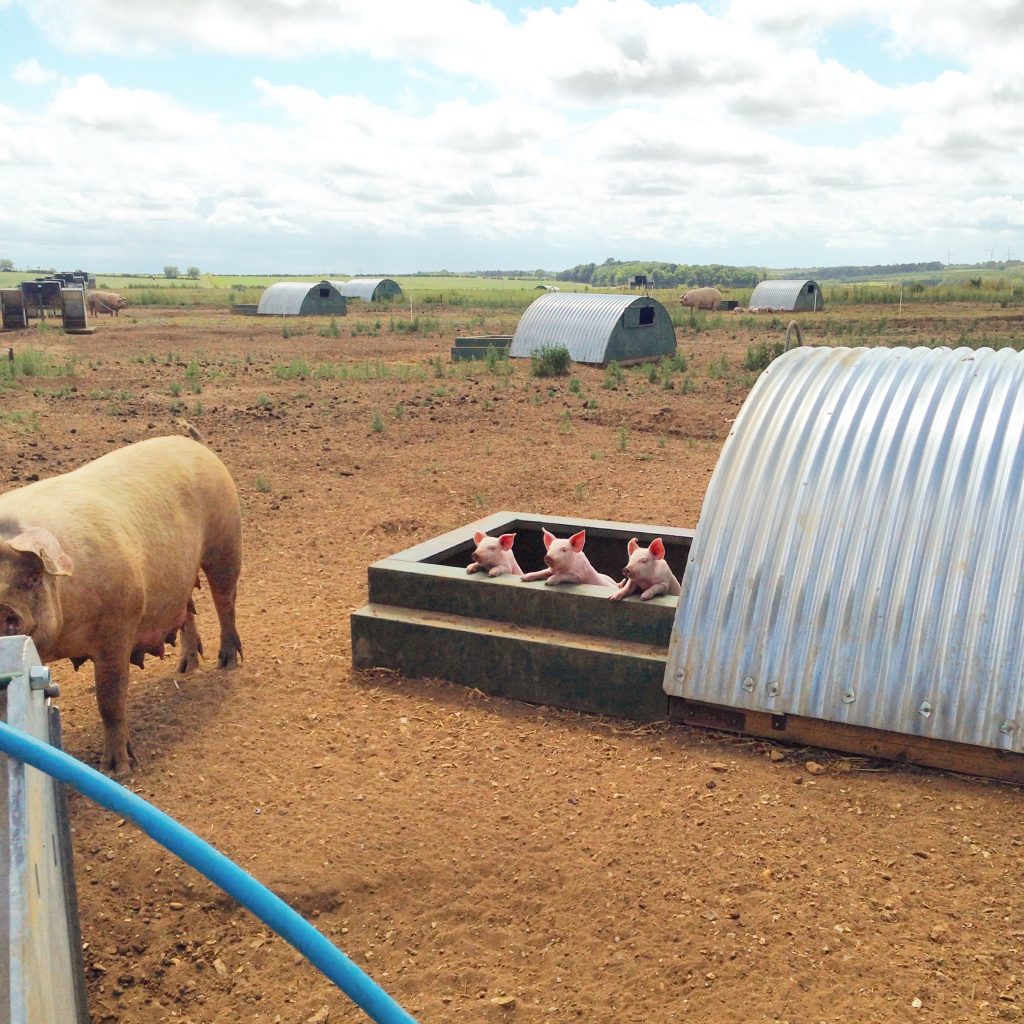
In a series of interviews with our pig specialists, we talk about working on pig units, farms and enterprises across the UK. We discover what a typical day might be like, what kind of experience and qualifications may help their career progression and discover the benefits of getting into pig farming.
First up is Dema-Jai Woodford, a female pig specialist who is proving unequivocally that pig farming is not just for the boys!
Read on to find out more!
RH: Talk us through a typical day on a unit as a pig specialist. How does it start, and what does it involve?
DJW: A typical day on a unit starts with feeding the dry sows and checking they’re all healthy and happy. Then we move onto feeding the sows in the farrowing paddocks and checking their piglets are growing well, and the sows are feeding them properly. Once all the feeding is done, we go for our lunch break. After lunch we get on with the rest of the day’s jobs, which varies, it could be moving the huts and putting the new straw in, moving boars, fixing water leaks, putting up electric fencing, changing batteries, the list is endless!
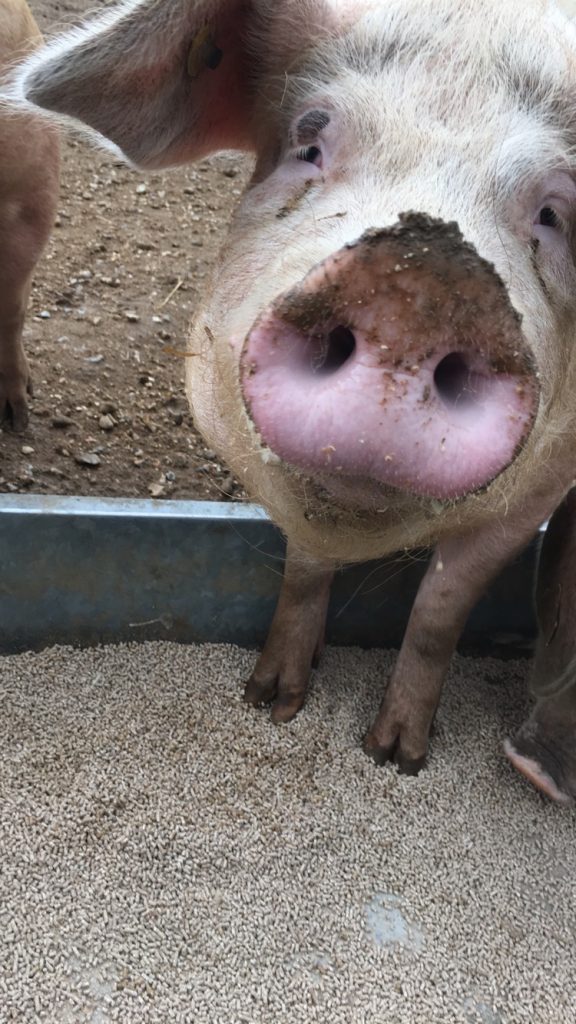
RH: Did you go to college? How did you start in pig farming?
DJW: After I left high school, I went to college to do a Sports Science course, which I quickly realised I didn’t enjoy and decided that I would find something else. After searching for a couple of days, I didn’t find anything I was interested in so I was in a bit of a rut. A friend of mine worked with pigs, and I used to help him out, and I began to really enjoy being there! So I decided to give it a go as a full-time job and here I am 4 years later still loving it!
RH: What kind of qualifications would you say a person interested in entering the UK pig industry might need? Are they necessary?
DJW: I learnt on the job, so I didn’t have any qualifications to start with. When I applied for an apprenticeship course, I was told I had to do the lower level course because I didn’t have a farming family background even though I had good grades. A year into my job, my boss put me on an AHDB Pork Stockman Development Scheme, which was six sessions of learning all about pig farming. I believe it’s widely recognised within the pig industry and there are higher courses you can go on all over the UK. I don’t think that qualifications are necessary as long as you have a strong work ethic, enjoy working with pigs and are willing to work outdoors in any weather!
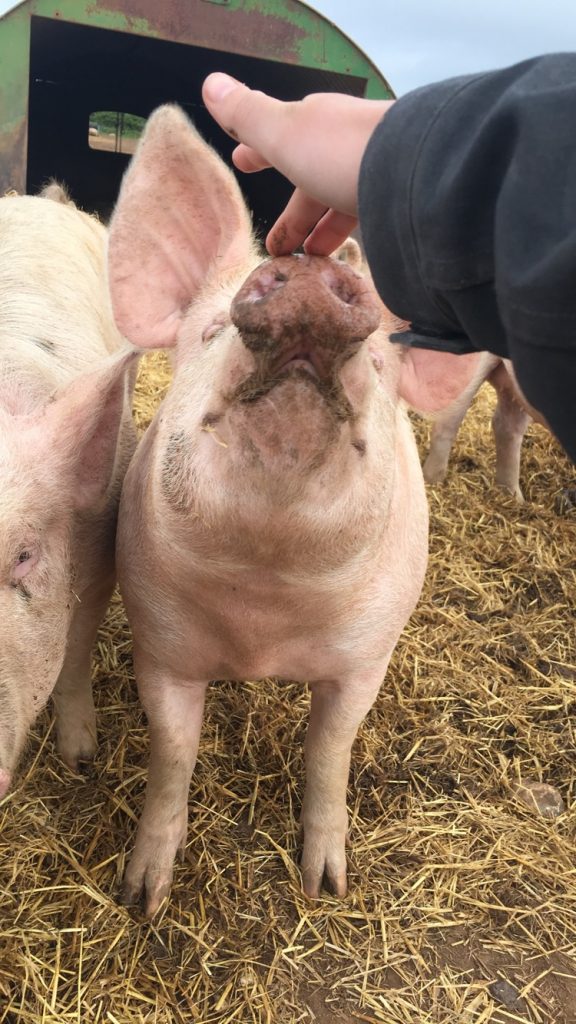
RH: What advice would you give to someone interested in working with pigs?
DJW: Go for it! It’s such a fun job to have! Try it out and see for yourself.
RH: What is it about pigs that you like?
DJW: They all have their own little characters, some you remember more than others and just watching them in the field they can do the funniest of things just being themselves and of course they taste good!!!
RH: What appeals to the relief side of working in the pig industry?
DJW: I like the idea that you’ll always be somewhere different, visiting new places, getting to know different people and learning the various ways that people farm.
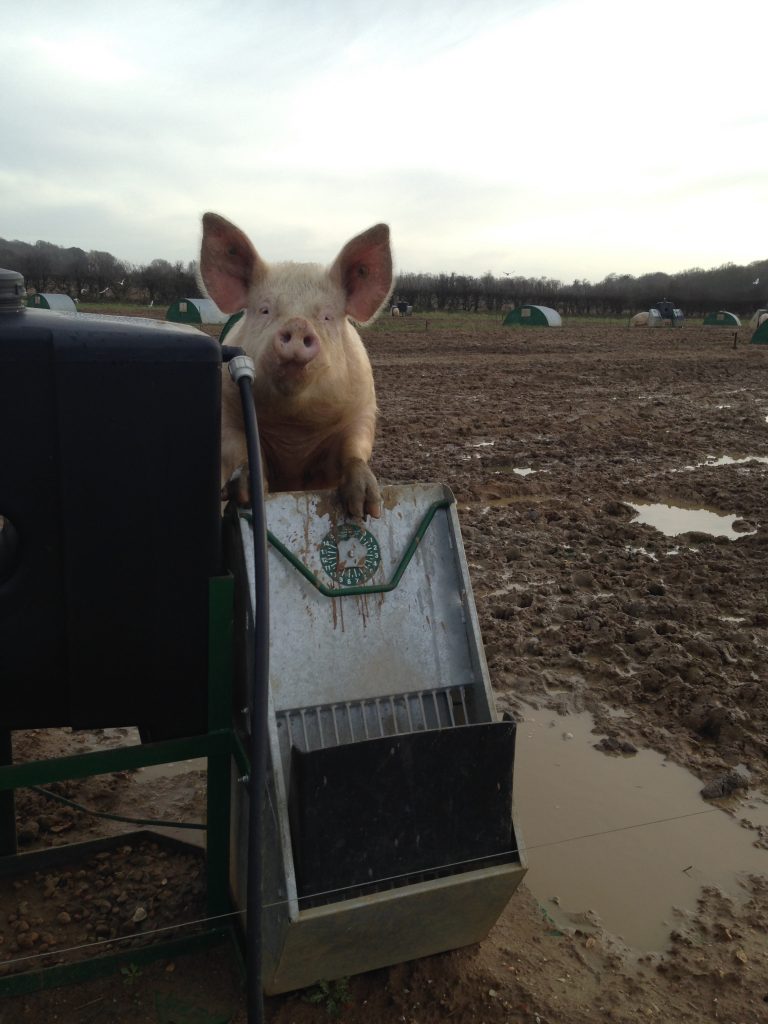
RH: How important is animal welfare to the British farming industry?
DJW: Animal welfare is always the number one priority, and that’s why I love it so much seeing the animals happy and healthy is the best part of the job!
RH: So what’s the ultimate career goal?
DJW: I definitely want to have my own pigs and create a business from it!
RH: And when not working, what do you like to when you have some time off?
DJW: I like to visit different places, take a walk on the beach with the dog and I love camping!
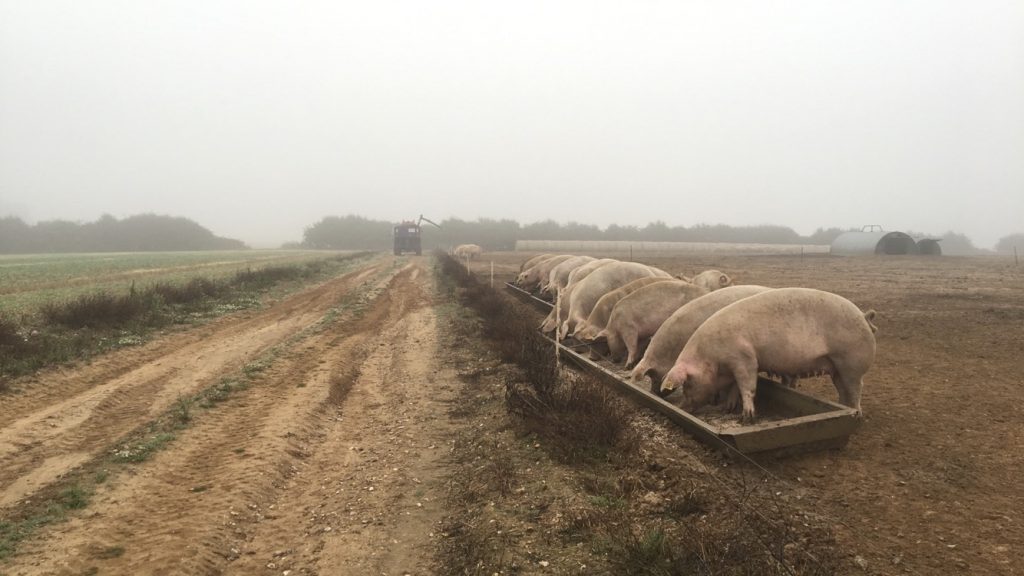
RH: Do you have a favourite pig breed?
DJW: I love the Mangalica pig, which is also known as the woolly pig. They look so cute and funny with wool!
RH: In your opinion, is working with pigs a rewarding job?
DJW: Definitely, especially working on a breeding unit where you get to see the piglets from birth and watch them grow, knowing they’re healthy when they leave the unit and you’ve managed to keep them alive through the struggles of all weather conditions.
RH: What’s it like to be a woman in the farming industry?
DJW: It’s definitely challenging, both physically and mentally. I’ve worked with a number of different farms in the UK, and I have experienced a few prejudices, but the majority of colleagues have treated me equally. I’ve always been able to do everything on the farm; some things just take a little extra effort!
